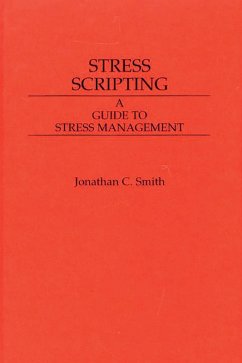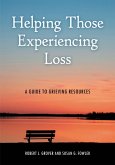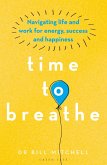Stress Scripting presents a unique and tested program of stress management. Its basic idea is that writing thought and action scripts for stress situations can enhance effective coping. Comprehensive, scholarly, and very accessible, it is unlike any other stress management book. With a focus on assertiveness training, coginitive restructuring, stress inoculation training, and relaxation, this book is an extremely versatile tool for therapy, workshops, university instruction, business consultation, and self-help groups. Innovative topics include: the link between assertiveness, defense, and coping; the similarity of problem solving and negotiation; relapse prevention; the phases of stress and stress inoculation training coping philosophies; and cognitive-behavioral relaxation training.
Divided into four parts, Stress Scripting is carefully designed to be used either in its entirety, or each chapter separately. Part I presents the basic ideas of stress scripting: defense and coping, assertiveness, thinking and stress, cues, reinforcement, and the phases of stress. It concludes with an option to contract for behavior change. Concentrating on behavior change, Part II introduces assertiveness scripts, relapse prevention, problem solving and negotiation, desensitization, and the coping philosophy. Part III presents an optional cognitive-behavioral relaxation training program. Stress Scripting can be integrated with whatever approach the user prefers. Part IV concludes this volume with an extensive series of individual and group exercises.
Divided into four parts, Stress Scripting is carefully designed to be used either in its entirety, or each chapter separately. Part I presents the basic ideas of stress scripting: defense and coping, assertiveness, thinking and stress, cues, reinforcement, and the phases of stress. It concludes with an option to contract for behavior change. Concentrating on behavior change, Part II introduces assertiveness scripts, relapse prevention, problem solving and negotiation, desensitization, and the coping philosophy. Part III presents an optional cognitive-behavioral relaxation training program. Stress Scripting can be integrated with whatever approach the user prefers. Part IV concludes this volume with an extensive series of individual and group exercises.









